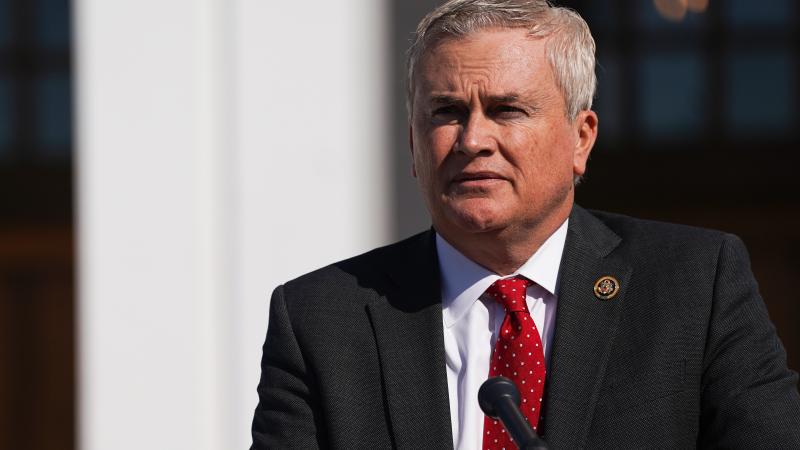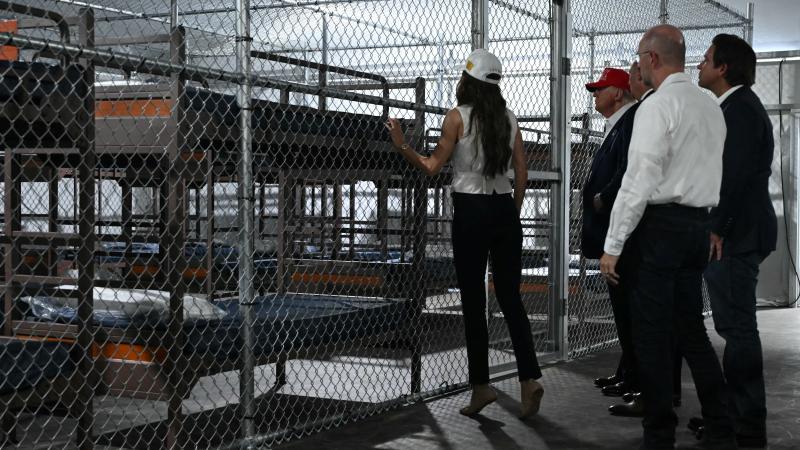Fed president warns inflation 'higher than we expect,' spreading nationwide
Although some wages are increasing for some Americans, they aren’t increasing enough to cover the skyrocketing costs of goods and services
The president of the Federal Reserve Bank of Minneapolis warns that the current rate of inflation is “very concerning” and “higher than we expect” and is spreading across the country.
Fed branch President Neel Kashkari told CBS News’ “Face The Nation” that inflation “is very concerning. We keep getting inflation readings, new data that comes in as recently as this past week, and we keep getting surprised.
“It’s higher than we expect. And it’s not just a few categories. It’s spreading out more broadly across the economy and that’s why the Federal Reserve is acting with such urgency to get it under control and bring it back down.”
Although some wages are increasing for some Americans, they aren’t increasing enough to cover the skyrocketing costs of goods and services resulting in a “real wage cut.”
Wages are “not going up as fast as inflation, so most Americans’ real wages, real incomes are going down,” Kashkari said. “I mean typically, we think about wage-driven inflation where wages grow quickly and that leads to higher prices in a self-fulfilling spiral – that is not yet happening.”
“High prices and wages are now trying to catch up to those high prices … and so we need to get the economy back into balance before this really does become a very wage-driven inflation story,” he added.
Real average hourly earnings fell 3.6% over the last year, according to a Bureau of Labor Statistics report. June 2022 marked the 15th consecutive month in which inflation outpaced wages.
Kashkari's warning comes after the Bureau of Labor Statistics’ latest Consumer Price Index increased to 9.1% year-over-year in June, the highest it’s been since the early 1980s, and the Producer Price Index increased to 11.3% in June. Both exceeded economists’ expectations and surpassed 40-year highs.
His warning also came after the Fed raised interest rates last week by 75 basis points, the second time in a month. After the Federal Open Market Committee raised the rate July 27, Federal Reserve Chair Jerome Powell said, “The current picture is plain to see. The labor market is extremely tight, and inflation is much too high.”
Last July, when gas prices started to reach record highs and inflationary concerns were raised by economists, President Joe Biden said he expected inflation to be “temporary."
He said in a national televised address, “As our economy has come roaring back we’ve seen some price increases. Some folks have raised worries that this could be a sign of persistent inflation. But that’s not our view. Our experts believe, and the data shows, that most of the price increases we’ve seen are expected to be temporary.”
However, since April 2021, inflation has wiped out all wage gains earned every month, according to a BLS report. The losses were noticeable after Biden signed the massive $1.9 trillion American Rescue Plan, considered to be the most expensive bill in the last 50 years.
The Congressional Budget Office projected the bill will cost $60 billion in federal government interest payments every year, with no end date.
In early February, the CBO estimated the baseline U.S. economy would operate $420 billion below capacity in 2021.
At the time, White House economist Lawrence Summers, who worked in the Obama and Clinton administrations, warned that the ARP would lead to increased inflation.
“And inflation is precisely what occurred,” Brian Riedl argued in National Review last December. “ARP-derived spending amounted to a staggering $1.2 trillion between March and the end of September. Another $500 billion will have been added to the tab by next September. At the same time, the Federal Reserve indirectly monetized much of this debt as part of its $120 billion in monthly bond purchases. Washington may as well have printed $1 trillion and thrown it out of helicopters.”
He also said that the first $1.2 trillion of ARP spending didn’t raise employment above the baseline projected by the CBO in its February 2021 analysis.
According to a recent CNN poll, a majority of Americans think the U.S. economy is “the worst it's been in a decade.”
The majority polled, 55%, said Biden’s policies have “made conditions worse,” an increase of 10% from a poll it conducted five months earlier.
The majority polled said Biden’s policies have “hurt the economy,” with 8 in 10 saying the government isn't doing enough to fight inflation.















